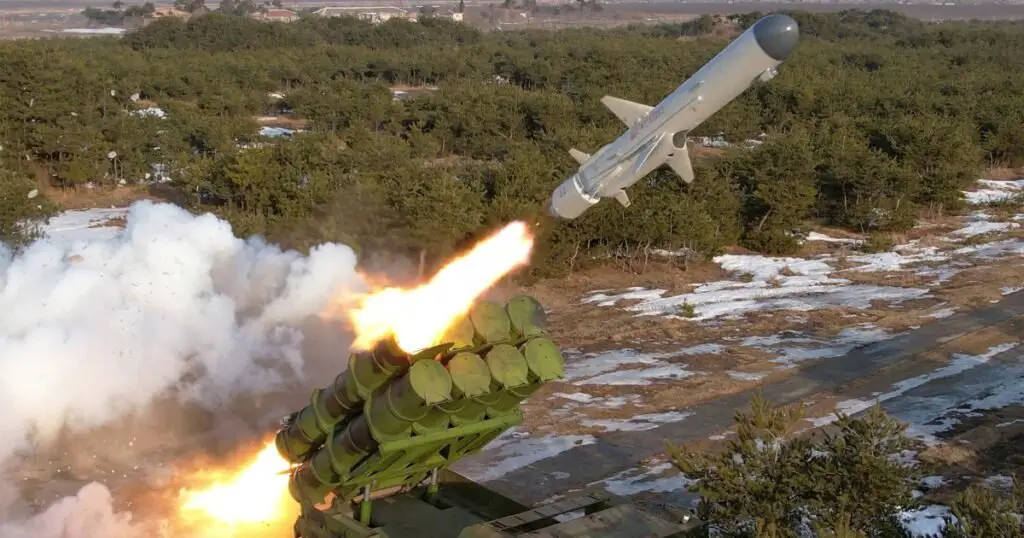North Korea is capable of producing ballistic missiles and Delivery to Russia They will be deployed in Ukraine within a few months, researchers told the UN Security Council (UNSC) after North Korean missile remnants were discovered on the Ukrainian battlefield.
Jonah Leff, head of the U.K.-based organization Conflict Armament Research, which studies weapons used in conflicts including Russia’s war against Ukraine, told the U.N. Security Council on Wednesday that among the remains were four North Korean missiles found in the July and August were recovered in Ukraine, including a finding that suggested it was produced in 2024.
“This is the first public evidence that missiles were manufactured in North Korea and then deployed in Ukraine within months, not years,” Leff told the council.
In June, Leff also informed the UN Security Council that his organization had “irrefutably” determined that ballistic missile remains found in Ukraine earlier this year came from a North Korean-made missile.
The report on Russia’s use of North Korean missiles in Ukraine came as Pyongyang said its military alliance with Russia had proven “very effective” in deterring the United States and its “vassal forces.”
In a statement carried by the official Korean Central News Agency on Thursday, an unnamed North Korean Foreign Ministry spokesman said Washington and its allies were prolonging the war in Ukraine and destabilizing the security situation in Europe and the Asia-Pacific region.
The “madness” of the response by “hostile forces” shows that increased cooperation between Pyongyang and Moscow “effectively deters the United States and the West from malicious expansion of their influence,” the official said.
Russia and North Korea recently ratified a mutual defense pact and more than 10,000 North Korean soldiers were deployed to support Russia in the war against Ukraine, according to U.S. and South Korean officials.
Neither Moscow nor Pyongyang have confirmed the presence of North Korean troops in Russia. Thursday’s statement made no mention of North Korea’s involvement in Ukraine or the heavy losses that Ukrainian and U.S. officials say North Korean troops have suffered in fighting in Russia’s Kursk region.
South Korea’s Yonhap news agency reported on Thursday that the country’s National Intelligence Service (NIS) said at least 100 North Korean soldiers had been killed and about 1,000 injured in the war so far.
The NIS told South Korean lawmakers in a closed session that North Korea’s inexperienced troops were being used by Russia as a “front-line attack force” and had suffered losses because they were unfamiliar with the terrain and “unable to respond to drone attacks.” “. ” by Ukrainian armed forces.
Ukrainian President Volodymyr Zelensky said in a social media post over the weekend that North Korean troops’ losses were “already felt.” South Korea, the United States, the European Union and eight other countries signed a joint statement on Monday condemning North Korea’s increasing involvement in Russia’s war in Ukraine, which they said represents a “dangerous expansion of the conflict with serious consequences for Europe and Europe “represents Indo-Pacific Security”.
The US also expressed concern at Wednesday’s UN Security Council meeting that Russia was close to accepting a nuclear-armed North Korea.
“What is concerning is that we believe that Russia may be on the verge of accepting North Korea’s nuclear weapons program, thereby reversing Moscow’s decades-long commitment to denuclearizing the Korean Peninsula,” said U.S. Ambassador to the United Nations Linda Thomas-Greenfield.
“We believe that Moscow will not only become more cautious in criticizing Pyongyang’s development of nuclear weapons, but also further impede the adoption of sanctions or resolutions condemning North Korea’s destabilizing behavior,” she said.
Russia’s UN Ambassador Vasily Nebenzia did not mention North Korea’s nuclear program in his address to the council. He defended the growing cooperation between Moscow and Pyongyang as Russia’s sovereign right.
“Russian cooperation with the DPRK … is consistent with international law and does not violate it,” he said, referring to North Korea by the acronym of its official name.
“This is not directed against third countries. It does not pose a threat to the states in the region or the international community and we have no doubt that we will continue to expand this cooperation,” he added.





